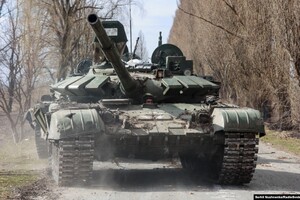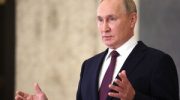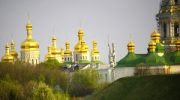Even if Putin fails, it will be difficult for any of his successors to return all the detached territories to Kyiv while maintaining legitimacy at home.

Empires are always a great force. Their decline is usually accompanied by geopolitical convulsions and wars. In addition, their citizens are entire nations that live too closely with each other. The transformation of an empire into a series of nation-states with clearly defined sovereign peoples and borders is seldom smooth and without much conflict.
Russia's invasion of Ukraine is just such a case, writes Dominic Liven, a professor at Cambridge University. In the 1880s, Russia's chief legal adviser wrote that if the national principle that every nation had its own country was applied to a vast territory controlled by the Romanovs, Habsburgs, and Ottomans, it would create chaos. He was right. It took two world wars, many smaller wars, genocide and large-scale ethnic cleansing to turn the imperial map of Central and Eastern Europe into a post-war national geography after 1945. Much of the Middle East still suffers from the effects of the decline of the Ottoman Empire. And the British and French empires only briefly filled the void left after the Ottomans. It has been difficult for Europe's ethnolinguistic and democratic nation-states to take root in a world where affiliation has traditionally been determined by local community, religion, dynasty, and region.
Bangladesh's secession from Pakistan came 24 years after the break-up of British India. And although the end of the British Empire was relatively peaceful, post-imperialist conflicts still rage from Ireland to the Middle East and Fiji. The worst of them is the confrontation between India and Pakistan over Kashmir.
Read also: The war in Ukraine may last until the end of 2023 – Johnson
The most terrible example of the slow impact of the collapse of the empire was the interwar Germany. Like Russia in 1991, Germany was on its knees in 1919, but retained the status of the most powerful state in the region. A mixture of post-imperialist insults and the restoration of power led to the rupture of the Peace of Versailles, which ignited a new world war. And here it is not necessary to compare Adolf Hitler and Vladimir Putin. With or without Hitler, Germany would eventually question the postwar order in Eastern and Central Europe.
After 1945, the Soviet Union survived as an empire. And now the consequences of its collapse are manifesting. It was a miracle that an empire with such a bloodthirsty history and a powerful intelligence apparatus disintegrated between 1985 and 1991 with almost no shots fired to protect it.
“The invasion of Ukraine is a belated revenge of the old Soviet secret service for 30 years of humiliation, retreat and defeat,” the article reads.
From the Western point of view, the almost bloodless disintegration of Soviet communism was almost a fairy tale. There was a conviction reminiscent of pre-1914 European views that modern Western civilization had broken the wheel of history and that liberal values had finally prevailed. But for the Russians, the 1990s were not a fairy tale. The economy and political institutions disintegrated. Life expectancy has decreased. Russia has turned from a superpower into a beggar. That is why so many Russians love Putin.
As is always the case, the loss of the Soviet empire has been most mourned by its elites. This greatly affected their sense of status, self-esteem and importance for world history. The loss of control over Ukraine has been a special tragedy for Russians. After all, this control was the key to the existence of Russia as an empire. Ukraine's independence in 1991 determined the fate of the USSR.
The author admits that for all these reasons, he was convinced that an independent Ukraine can survive only if good relations between Russia and the West are maintained. In such a situation, Kyiv could act as a bridge between them. But when Ukraine had to elect one of them in 2014, there was a catastrophe.
Read also: The war in Ukraine threatens famine 1/5 of the world's population – UN Secretary General
Putin's initial strategy failed. He will probably now try to conquer the whole of Donbas, as well as a piece of land in the south, to connect it with the Crimea. If he succeeds, Ukraine will never accept such a new border as the basis for long-term peace. The bold war for independence against the invasion of the Russian monster will play a central role in the Ukrainian national myth. Even if Putin is not in the Kremlin, it will be difficult for any future Russian government to leave Donbas, let alone Crimea, while maintaining legitimacy. If other wars abroad, such as in Kashmir, can be a guide, then the Russian-Ukrainian war could continue in a semi-frozen state for decades, undermining international stability. It is possible that this conflict will grow into a nuclear confrontation.
See the special topic: Life in the Russian Federation – computer game – Zelensky Russians you just need to take off these 3D glasses of three colors. Zelensky commented on Putin's use of nuclear weapons The president said he did not want to believe that this could happen. Zelensky answered the question whether a new Mariupol can happen in Odessa According to the president, the occupiers have plans for a corridor to Moldova. The occupiers deported about half a million people from Ukraine – Zelensky It is not known exactly how many people died, were tortured and buried. Zelensky on the bombing of Odessa: “Stinking trash”


